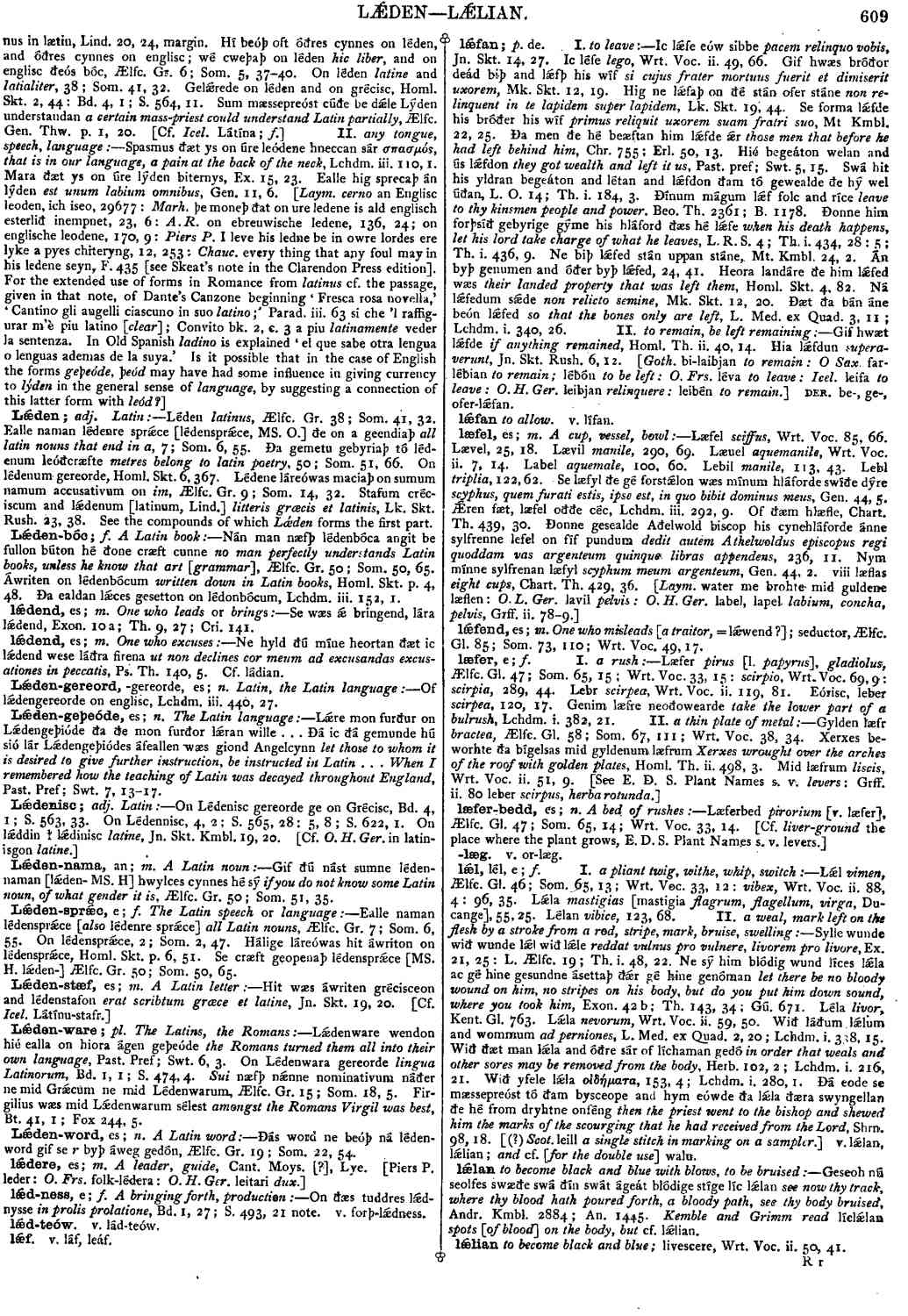lǽfan
- verb [ weak ]
-
Ic lǽfe eów sibbe
percent relinquo vobis,
- Jn. Skt. 14, 27 .
-
Ic léfe
lego,
- Wrt. Voc. ii. 49, 66 .
-
Gif hwæs bróðor deád biþ and lǽfþ his wíf
si cujus frater mortuus fuerit et dimiserit uxorem,
- Mk. Skt. 12, 19.
-
Hig ne lǽfaþ on ðé stán ofer stáne
non relinquent in te lapidem super lapidem,
- Lk. Skt. 19, 44.
-
Se forma lǽfde his bróðer his wíf
primus reliquit uxorem suam fratri suo,
- Mt Kmbl. 22, 25 .
-
Ða men ðe hé beæftan him lǽfde ǽr
those men that before he had left behind him,
- Chr. 755 ;
- Erl. 50, 13 .
-
Hié hegeáton welan and ús lǽfdon
they got wealth and left it us,
- Past. pref ;
- Swt. 5, 15 .
-
Swá hit his yldran begeáton and létan and lǽfdon ðam tó gewealde ðe hý wel úðan,
- L. O. 14 ;
- Th. i. 184, 3 .
-
Ðínum mágum lǽf folc and ríce
leave to thy kinsmen people and power.
- Beo. Th. 2361 ;
- B. 1178 .
-
Ðonne him forþsíð gebyrige gýme his hláford ðæs hé lǽfe
when his death happens, let his lord take charge of what he leaves,
- L. R. S. 4 ;
- Th. i. 434, 28 :
- 5 ;
- Th. i. 436, 9 .
-
Ne biþ lǽfed stán uppan stáne,
- Mt. Kmbl. 24, 2.
-
Án byþ genumen and óðer byþ lǽfed,
- 24, 41 .
-
Heora landáre ðe him lǽfed wæs
their landed property that was left them,
- Homl. Skt. 4, 82 .
-
Ná lǽfedum sǽde
non relicto semine,
- Mk. Skt. 12, 20 .
-
Ðæt ða bán áne beón lǽfed
so that the bones only are left,
- L. Med. ex Quad. 3, 11 ;
- Lchdm. i. 340, 26 .
-
Gif hwæt lǽfde
if anything remained,
- Homl. Th. ii. 40, 14.
-
Hia lǽfdun
superaverunt,
- Jn. Skt. Rush. 6, 12 .
Bosworth, Joseph. “lǽfan.” In An Anglo-Saxon Dictionary Online, edited by Thomas Northcote Toller, Christ Sean, and Ondřej Tichy. Prague: Faculty of Arts, Charles University, 2014. https://bosworthtoller.com/20948.
Checked: 1